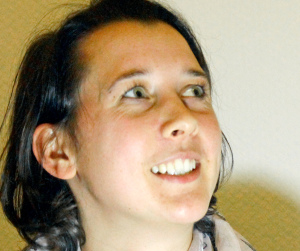
On 7 October, the European Court of Human Rights (ECtHR) unanimously ruled in favor of Jehovah’s Witnesses in the case of Begheluri and Others v. Georgia.
The 99 Georgians, all but one of whom are Jehovah’s Witnesses, alleged that they were victims of large-scale religiously motivated violence in the early 2000s. They lodged the application with the European Court of Human Rights in July of 2002.
The alleged harassment included 30 accounts of verbal abuse and physical violence such as violent dispersal by police and assault.
The ECtHR’s judgment reads that there had been:
A violation of Article 3 (prohibition of inhuman or degrading treatment) of the European Convention on Human Rights, taken separately and in conjunction with Article 14 (prohibition of discrimination) with regard to 32 of the applicants, on account of the inhuman and degrading treatment to which they were subjected – and no violation, in that respect, of Article 3 taken separately or in conjunction with Article 14 with regard to the remaining applicants;
A violation of Article 3, taken separately and in conjunction with Article 14 with regard to 46 of the applicants on account of the authorities’ failure to conduct an effective investigation into their complaints – and no violation, in that respect, of Article 3 taken separately or in conjunction with Article 14 with regard to the remaining applicants; and
A violation of Article 9 (freedom of thought, conscience, and religion), taken separately and in conjunction with Article 14 with regard to 88 applicants.
The Court found in particular that the State authorities had been ineffective in preventing and stopping religiously motivated violence. State officials had either directly participated in the attacks on Jehovah’s Witnesses or they had tolerated violence by private individuals against members of the religious community. The authorities had thus created a climate of impunity, which encouraged further attacks throughout the country. Furthermore, they had been unwilling to ensure the prompt and fair prosecution of those responsible.
The mentioned attacks date back to the time of Shevardnadze, however, religious minorities continue to suffer from attacks and harassment.
In 2013, 53 violent incidents against Jehovah’s Witnesses were reported and since November 2012 several clashes have occurred between Muslim and Christian populations.
With the Begheluri judgment, the Georgian authorities are now again urged to promptly and effectively investigate all criminal acts against its citizens. The government already reacted to the verdict saying that: “[…] it will ensure that the victims are rapidly provided the due remedies as laid out in the judgment”.
The statement further underlines that Georgia is committed to the ECHR and its international obligations through the adoption of the National Human Rights Strategy for 2014-2020, the anti-discrimination legislation and the Association Agreement signed with the EU.
Yet, after the adoption of these instruments and several public statements condemning violence against religious minority groups over the past year, little action has been taken to hold perpetrators accountable.
The element of ineffective prevention and investigation of cases of religiously motivated violence was also clearly visible last year during the religious conflicts in Nigvziani, Tsintskaro and Samtatskaro. In these cases it became clear that the state’s intervention remained limited to passively mobilizing the police to the regions.
The Armenian Apostolic Church (AAC), the Seventh-day Adventists and the Georgian Protestant Church also filed complaints of governmental violations against their religious rights with the Public Defender’s Tolerance Center.
Statements about the importance of the protection of minority rights made by government officials often remain without concrete action and can be seen as merely informative.
It is therefore important that the Ministry of Internal Affairs (MIA), while investigating similar alleged offences, does not let the public opinion undermine the rule of law. Trainings on religious neutrality and freedom for MIA staff and police officers could bring about more awareness and sensitivity.
Sarah Delys is a criminologist working for Human Rights Education and Monitoring Centre in Tbilisi.
Case of Begheluri and Others v. Georgia: http://hudoc.echr.coe.int/sites/eng/pages/search.aspx?i=001-146769
Statement by the Government of Georgia: http://government.gov.ge/index.php?lang_id=ENG&sec_id=288&info_id=44973

